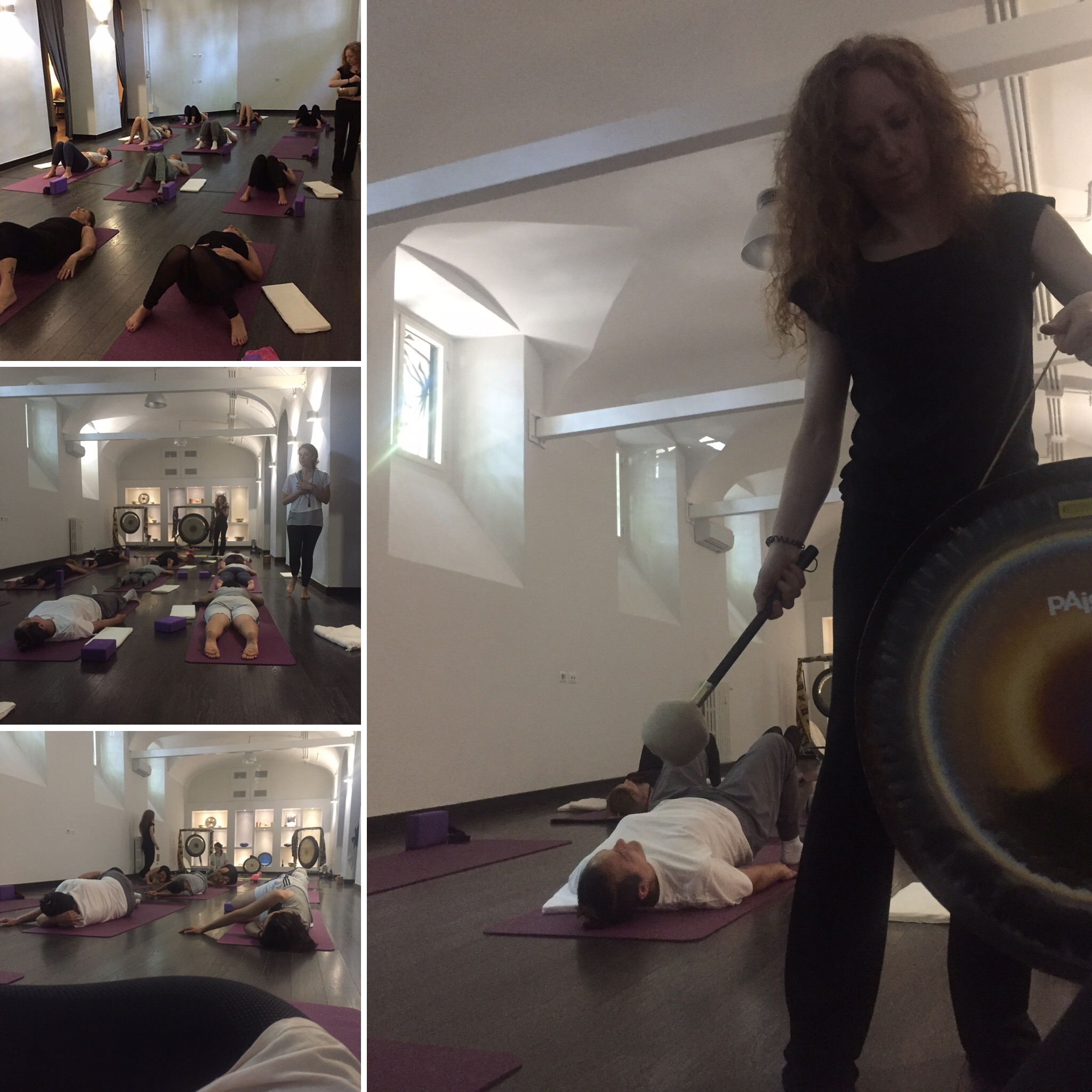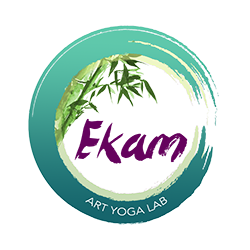
Anahata
Per esprimere il concetto di yin e yang potremmo usare le parole di Platone : “non muovere mai l’anima senza il corpo, né il corpo senza l’anima, affinché difendendosi l’uno con l’altra, queste due parti mantengano il loro equilibrio e la loro salute”.
Anahata, il suono non udibile o come suggerisce la parola stessa “non colpito” è il suono che non sorge da alcun contatto: esso è senza un principio e senza un decadimento; in altri termini esso è infinito.
La sacra sillaba Om dei Veda è il suono anahata per eccellenza, la vibrazione che da sempre permea e sostiene ininterrottamente ogni fenomeno esistente nell’universo.
Si dice che tra le infinite vibrazioni armoniche del Gong risuoni l’OM e che esso sia strumento e Suono di Pace.
L’effetto di questa duplice pratica è rigenerante, riequilibrante, trasmutativa; le vibrazioni poi agiscono sul corpo fisico in ogni sua cellula, ma anche sui ‘corpi’ più sottili: emotivo, mentale e spirituale.
————————————
To express the concept of yin and yang we could use Plato’s words: “never move the soul without the body, nor the body without the soul, so that defending each other, these two parts maintain their balance and their health ”.
Anahata, the inaudible sound or as the word “not struck” suggests is the sound that does not arise from any contact: it is without a beginning and without a decay; in other words it is infinite.
The sacred syllable Om from the Veda script is the anahata sound par excellence, the vibration that has always permeated and continuously supports every phenomenon existing in the universe.
It is said that among the infinite harmonic vibrations of the Gong the OM resounds and that it is instrument and Sound of Peace.
The effect of this dual practice is regenerating, rebalancing, transmutative; the vibrations then act on the physical body in every cell, but also on the more subtle ‘bodies’: emotional, mental and
spiritual.
Anche questo è Ekam 🕉
